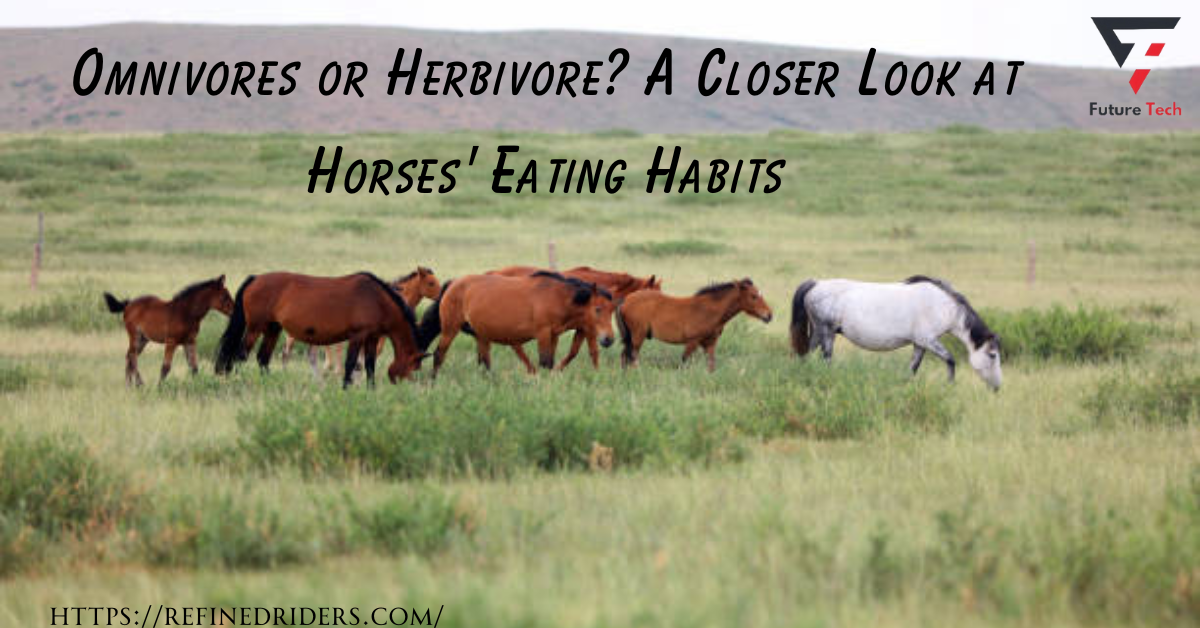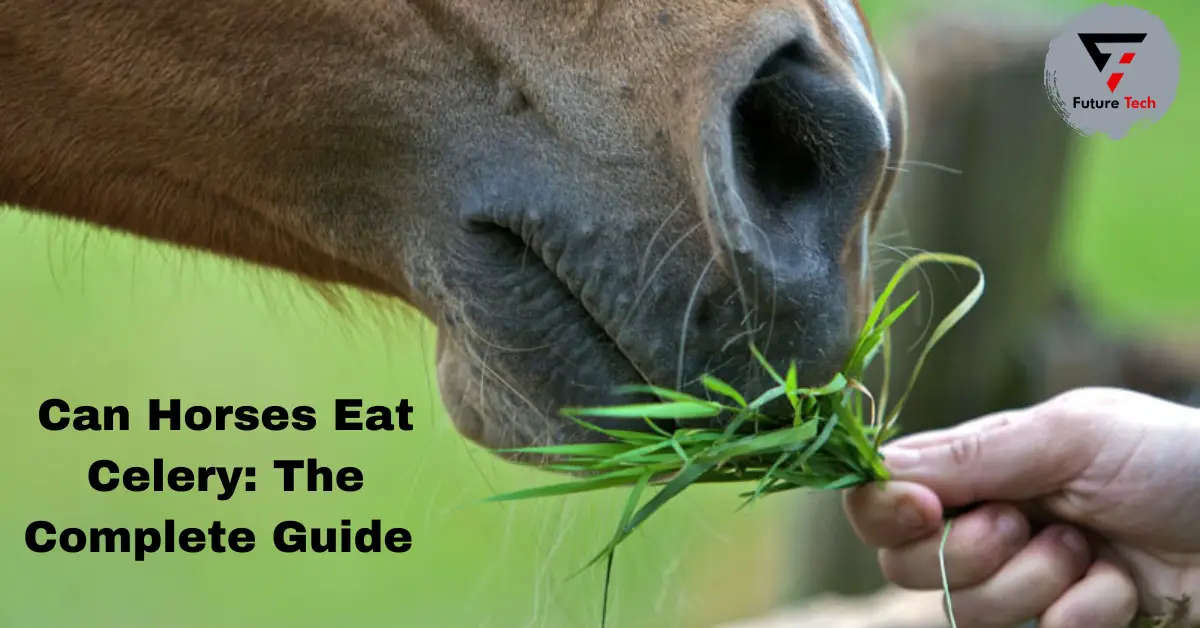Horses, those elegant and powerful creatures that have graced our world for centuries, have long been classified as herbivores, primarily feasting on a diet composed of plant-based materials. Yet, beneath their seemingly herbivorous exterior lies a fascinating debate: are horses, in fact, omnivores? While the term “omnivores” typically conjures images of animals readily consuming both plant and animal matter, the notion of horses embracing such a varied diet might seem perplexing. In this in-depth exploration, we’ll closely examine the evidence, behaviors, and occasional exceptions that have led to the intriguing question of whether horses, despite their herbivorous reputation, possess an inner omnivorous nature. Join us as we embark on a journey to unravel the mystery of horses’ actual eating habits—omnivores or herbivores?
If you spend enough time with horses, you’ll finally hear stories of horses who eat meat. It’s impossible – an away friend will give you a link to a video of a horse devouring a live newborn chick, or you’ll be out at the stable and hearing a story about someone’s horse taking a burger. The book Deadly Equines: The Shocking True Story of Meat-Eating and Murderous Horses also generated interest among equestrians.
Horses are either herbivores or omnivores.
Horses are herbivorous creatures by nature, which means they eat only plants. However, horses have acted like omnivores by carefully eating meat. Every element of the horse has come to a herbivorous lifestyle during development. When we look at their heads, there are specific distinctions between omnivores and herbivores.
Lions, for example, have eyes that look ahead and allow them to focus on their prey. On the other hand, horses have their eyes on the side of their heads, giving them a nearly 360-degree field of vision ideal for detecting predators.
Sharp teeth with large teeth in a carnivore’s jaw may tear through flesh in seconds. On the other hand, horse teeth have a flat surface ideal for crushing vast amounts of fibre grass. Although male horses can have pets, they are often tiny and quiet in many cases. They developed their digestive systems to handle a fibre diet from grass and other plants. While the digestive tracts of carnivores are relatively short, horses have a wide cecum to ferment hay and long, functioning intestines. Horses have a gall bladder, which aids in digesting much fat.
The Digestive System of the Horse
The equine digestive tract is highly effective at turning grass into energy. Horses’ teeth “erupt” continuously throughout their lives as they wear down from chewing tough plant stuff. We can find the range of wolf teeth horses between zero and four, even though they are not required. Primary teeth help tear meat, something horses do not do very often. Classify the horse’s digestive system as ruminant or non-ruminant.
The fermentation process helps the animal digest the results and absorb energy from them. Horses, like rabbits, are “hindgut fermenters,” which means they employ bacteria in their digestive tract.Horses, like rabbits, are “hindgut fermenters,” which means they use bacteria in their cement and large intestine to ferment and digest fibre.
Horse stomachs hold a small quantity, empty quickly, and food moves through their systems at 1 foot per minute.
Can Horses Consume Meat?
Horses possess a herbivorous nature, which means they have naturally adapted to diets primarily composed of plant materials. Their digestive system underwent optimisation to break down and extract nutrients from fibrous plant sources like grasses and hay. Unlike carnivores or omnivores, horses feature a relatively uncomplicated stomach and a specialised hindgut fermentation system, allowing them to digest cellulose and other intricate carbohydrates in plants effectively.
The evolution of horses has fine-tuned them for the efficient processing of plant-based diets, making their digestive system ill-suited for the digestion of meat. Although horses do not adhere strictly to herbivory, unlike certain animals, trying to supply them with a meat-rich or protein-heavy diet would probably result in digestive complications and health issues. In general, offering horses a diet that corresponds with their inherent herbivorous tendencies is most advisable, ensuring their overall well-being.
Do Wild Horses Take Meat?
In the wild, horses seldom eat meat. Wild horses have been known to consume small birds or rodents when food is scarce. It is not uncommon for wild horses to show hungry emotions during brutal winters. Horses have a strong survival instinct; if they can’t even meet their basic food needs, they’ll look for other survival methods.
5 Examples of Horses Eating Meat
1. Insects: Horses may accidentally ingest insects while grazing, especially if the insects are on the plants they consume.
2. Scavenging: In rare cases, horses might scavenge for food, including small amounts of animal protein, if their usual food sources are scarce.
Observers typically witness this behaviour in situations of extreme hunger.
3. Curiosity: Some horses might mouth or play with objects, including small animals like mice, as part of their natural curiosity. This does not necessarily indicate a dietary preference.
4. Feeding Supplements: Occasionally, horse owners or caretakers might provide specialised feed supplements that include trace amounts of animal-derived ingredients for specific nutritional purposes.
5. Abnormal Behavior: Horses with certain medical conditions or behavioural issues might display unusual eating habits, including consuming non-traditional items like meat. Underlying health or psychological problems are typically associated with these cases.
Can horses eat lawn clippings?
Generally, it is not recommended to feed horses lawn clippings. Although horses are herbivores and can consume various grass types, several vital considerations arise when contemplating the use of lawn clippings as feed:
Chemicals: Lawn clippings from treated lawns can contain toxic pesticides, herbicides, and fertilisers for horses upon ingestion, resulting in serious health issues.
Fermentation: Harmful bacteria and moulds can swiftly grow in freshly cut grass clippings, leading to fermentation. Consuming spoiled clippings can induce colic or other digestive problems.
Nutrient Imbalance: Lawn clippings might not give horses a balanced nutritional profile. Horses possess specific dietary requirements, and an unbalanced diet could cause deficiencies or other health concerns.
Risk of Choking: Dense, wet clippings can clump together, potentially causing horses to choke.
If contemplating the use of grass clippings as horse feed, taking precautions is essential:
- Someone has confirmed that the lawn has not been treated with chemicals hazardous to horses.
- Thoroughly dry the clippings before offering them to the horses to minimise the risk of fermentation.
- Introduce the clippings in moderation and as part of a well-balanced diet meeting the horses’ nutritional needs.
- Closely observe your horses for any indications of digestive issues or discomfort.
Can horses eat ice cream?
No, horses should not eat ice cream. Ice cream contains ingredients unsuitable for a horse’s digestive system and nutritional needs.
Typically, ice cream is created with dairy, sugar, and different flavourings, all of which may be harmful to horses:
1. Dairy: Most adult horses are intolerant to lactose, which means they do not have the enzymes needed to break down lactose, a sugar present in milk and other dairy products. Feeding dairy-based products like ice cream can lead to digestive upset, colic, and other gastrointestinal issues.
2. Sugar: Ice cream is high in sugar content, which is not a natural part of a horse’s diet. Excessive sugar intake can contribute to metabolic disorders such as insulin resistance and laminitis.
3. Flavorings: Ice cream often contains artificial flavourings, colours, and additives that may not be suitable for horses and could potentially cause adverse reactions
4. Fat Content: Ice cream can be high in fat, which isn’t a typical component of a horse’s diet. Overfeeding fatty foods can lead to weight gain and other health problems.
Do wild horses eat birds?
Wild horses primarily maintain herbivorous diets, mainly consuming plant-based materials like grasses, leaves, and other vegetation. While no evidence suggests that wild horses regularly hunt or destroy birds as a significant dietary component, there have been exceedingly rare instances of wild horses displaying behaviours involving birds.
Wild horses have been observed pecking at or interacting with insects, including birds, out of curiosity or interaction. Nonetheless, these behaviours do not typify their usual dietary patterns and are generally considered exceptions rather than routine behaviours.
It’s crucial to recognise that domestic or wild horses possess digestive systems adapted for processing plant materials. They structure their teeth, stomach, and intestines to extract nutrients from fibrous vegetation.
While horses might occasionally be interested in non-plant objects, their diet predominantly revolves around consuming plant-based materials to fulfil their nutritional requirements.
Summary
They classify horses as herbivores, not omnivores. They specialise their digestive systems for processing plant-based materials and primarily consume grasses, hay, and other forms of vegetation. Although there have been rare instances of horses consuming small quantities of animal protein, such as insects, these occurrences are exceptions and do not reflect their usual dietary behaviour. They structure their teeth, stomach, and intestines to extract nutrients from fibrous plant materials efficiently. Therefore, offering horses diets that align with their inherent herbivorous tendencies is advisable to ensure their well-being and health.




